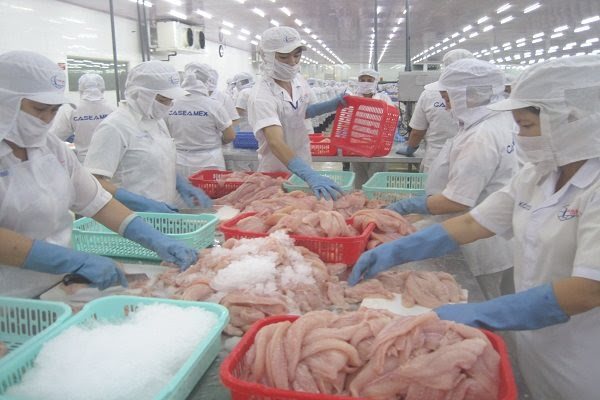HCMC – Vietnam was among four countries worldwide subject to the largest number of trade remedies from January to September 2020, according to the Ministry of Industry and Trade.
The number of trade remedies imposed on Vietnamese goods in nine months doubled that of last year, with the most affected products being steel, aluminum, seafood, wood and construction materials, which are also the country’s key export products.
The Ministry of Industry and Trade is keeping a close watch on the export of key products, especially those that are being investigated or subject to trade remedies. The ministry has published a list of 13 at-risk products on its website and the list will be updated regularly.
As of late September, the ministry has reported 193 trade remedies on Vietnamese goods, including 108 anti-dumping cases, 22 anti-subsidy cases, 23 tax evasion cases and 40 safeguard cases. Sixty-two percent of the cases were from the United States, the EU, India, Canada and Australia.
Speaking to Thanh Nien newspaper, director of the Trade Remedies Authority of Vietnam Trieu Dung noted that trade remedies have affected Vietnamese goods worth some US$12 billion since the first case was reported in 2003. Vietnam has appealed successfully in 65 of the cases.
Dung stated that the number of trade remedies imposed on Vietnamese goods would definitely increase in the time to come. The Trade Remedies Authority has worked with 12 trade associations to help Vietnamese businesses avoid or resolve problems related to trade remedies.
According to an international trade expert, the increase in the number of trade remedies is understandable in the context of the rising protectionism worldwide and it is also proportional to Vietnam’s import and export revenue.
“When a country opens a safeguard investigation into a Vietnamese product, it means Vietnam’s increasing exports of the product are putting pressure on the country’s domestic production,” he explained.
Trade remedies are a tool to protect domestic production and, as such, Vietnam is imposing trade remedies on the fertilizers, steel and other products of several countries.









